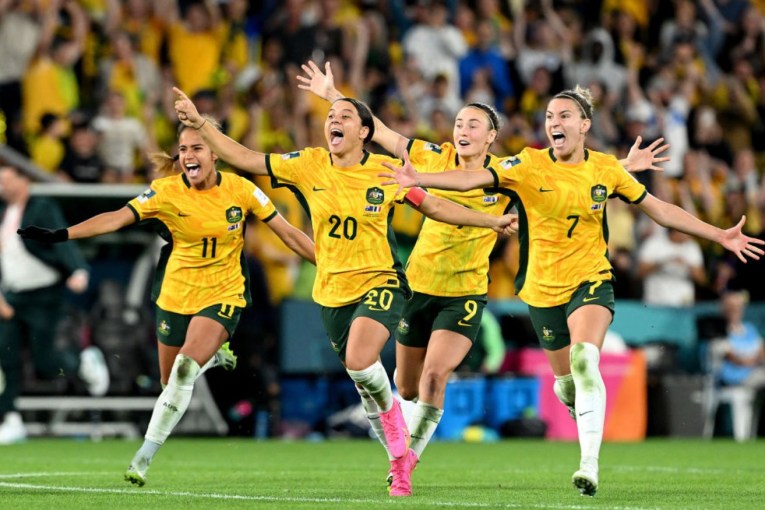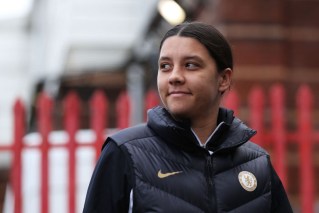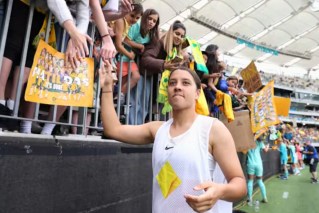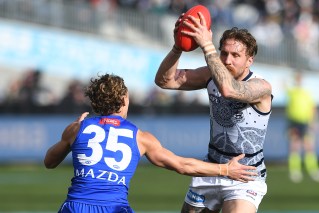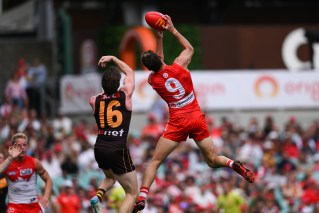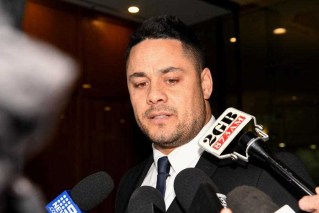Should old acquaintance be forgot

Bruno Fornaroli is almost apologetic after scoring against his former employers. Photo: Getty
The A-League’s ninth round could have been called ‘reunion round’.
Three of the five games played across the A-League this past week featured players scoring against their former employers.
Bruno Fornaroli jagged the opener in Perth Glory’s 3-0 win over Melbourne City, Western United’s Besart Berisha scored a brace against Melbourne Victory and Wellington’s Jaushua Sotirio found pay dirt against Western Sydney Wanderers.
Tantalisingly, the meeting between Glory and City marked the first time that Fornaroli returned to Melbourne to take on his former side since he was frozen out by former coach Warren Joyce in 2018/19 and, while United had already squared off against Victory once, Sunday marked the first time that the expansion club would play host to the big dogs of Victoria’s yard.
But what happened when the two leading men came face-to-face with their old flames?
Well, to quote Robert Plant, there was a whole lotta love.
Fornaroli was met with nothing but respect and adoration from the home fans on Friday night – even after he outmuscled Harrison Delbridge to open the scoring. Anti-Joyce chants could be heard emanating from the stands as the contest wore on; a tacit acknowledgement of where they placed the blame for last season’s divorce.
When Fornaroli departed as an 87th-minute substitute, fans rose to their feet to applaud their former club icon.
Fornaroli scores against his old club! Last-placed Perth have the lead over 2nd-place City 😍 #Aleague #MCYvPER pic.twitter.com/3NEIYiYZ0e
— FOX Sports Football (@FOXFOOTBALL) December 6, 2019
“For me, it’s crazy,” Fornaroli said post-game. “To see the love the fans have for me, I think it’s the best. It’s the best.
“Maybe, someone will one day win a trophy for [City] and no one will remember him and no one will say goodbye or hello. But the feeling that I had in my last minute, nothing can compare.
On Sunday in Geelong, Berisha was treated with similar reverence – the only player from United to elicit cheers from the Victory fans during player introductions.
Though he did, unlike Fornaroli, celebrate following his second goal he later explained that there was nothing acrimonious between him and his former club – who he left in 2018 to join J-League side Sanfrecce Hiroshima.
“I wanted to celebrate my goals today,” he said. “If I score, I really want to celebrate.
“If you have to move on, I move on and focus on the boys, on the new team and the new club.
“The most important thing is what I have in my heart for Victory, celebrating or not celebrating.”
“What a time to score!” ⚡@BesartBerisha7
Watch live on Fox Sports 505. #WUNvMVC #ALeague pic.twitter.com/nIzpxvcAFe
— FOX Sports Football (@FOXFOOTBALL) December 8, 2019
Such respect between fans and former players is admirable.
Football players are, ultimately, professionals doing their jobs and should a better opportunity to provide for themselves and their family by moving clubs come along they should be just as recognised as a lawyer or teacher moving from one place of employment to another.
Furthermore, Fornaroli and Berisha’s moves weren’t reflective of standard A-League movement.
Yet, there is something to be said for tribalism in football.
Though it’s unlikely that Australia’s sporting culture will ever produce the levels of animosity that saw Barcelona fans throw a pig’s head at Luis Figo after he signed with Real Madrid, the development of genuine spice between clubs is, perversely, a goal to work towards.
Australian clubs are already behind the eight ball in this regard compared to most other clubs around the world, due to both their youth and franchise nature of their births making it more difficult to capture a defining identity.
The hyper-capitalism that is homogenising football around the world also doesn’t help.
But, nonetheless, one of the biggest – if not the biggest – short-term impediments to this growth is player movement.
Thanks to factors such as the salary cap and lack of transfer fees between clubs, player churn in the A-League is astronomical: over 50% of the league’s players out of contract at the end of all the past five seasons. The figure was 61.5% at the end of 2018/19.
♻️ High player churn continues to impact the #ALeague with 58% of players set to become unemployed at the end of the season.#TalkingPointTuesday looks at the precarious nature of A-League careers, particularly for young players. pic.twitter.com/rBLulo9n9p
— The PFA (@thepfa) November 26, 2019
As clubs look to establish cultures and identities in their formative years they, in most cases, require avatars on the pitch that define them to do so.
Unfortunately, said avatar is often in the final year of his contract.
It’s a situation that not only places undue strain on players, but also limits the development of the game.
“It demonstrates that the salary cap model is no longer fit for purpose and reinforces the chaotic nature of the league’s regulations,” PFA chief executive John Didulica told The New Daily.
“We cannot build value in clubs and value in players if we have this chaotic cycle of player movement every season. It is counter-productive to every aspiration that the league has, whether it’s producing better players and people to deepening the connection between players and fans.”
A-LEAGUE – ROUND 10
Friday: Brisbane Roar v Western United, Suncorp Stadium, 7.30pm
Saturday: Melbourne Victory v Wellington Phoenix, AAMI Park, 5pm; Sydney FC v Central Coast Mariners, Jubilee Stadium, 7.30pm; Perth Glory v Western Sydney Wanderers, HBF Park, 9.45pm
Sunday: Newcastle Jets v Melbourne City, McDonald Jones Stadium, 6.30pm
Bye: Adelaide United
W-LEAGUE – ROUND 4
Thursday: Melbourne City v Melbourne Victory, ABD Stadium, 7.30pm
Friday: Perth Glory v Canberra United, Dorrien Gardens, 10.15pm
Saturday: Brisbane Roar v Adelaide United, Lions Stadium, 5.30pm
Sunday: Newcastle Jets v Sydney FC, McDonald Jones Stadium, 4pm
Bye: Western Sydney Wanderers
